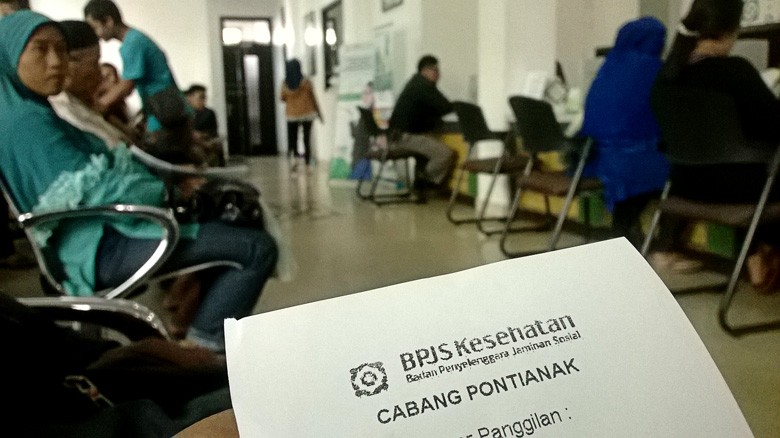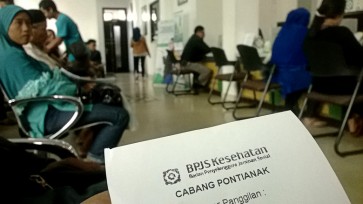Popular Reads
Top Results
Can't find what you're looking for?
View all search resultsPopular Reads
Top Results
Can't find what you're looking for?
View all search resultsLabor-intensive industries wary of pressure from BPJS premium increase
Indonesian Textile Association (API) chairman Ade Sudrajat said the BJPS Kesehatan premium increase proposal came at a bad time because the economy was not in its best condition.
Change text size
Gift Premium Articles
to Anyone
L
abor-intensive industries such as textiles and footwear have expressed concern over the government’s plan to increase premiums payable to the Health Care and Social Security Agency (BPJS Kesehatan), which manages the national health insurance (JKN) program, amid its severe financial deficit.
Under the proposal, the income ceiling to be used as the basis for calculating the premium for privately employed workers will be increased from Rp 8 million (US$563.63) to Rp 12 million. Meanwhile, the cost-sharing scheme will remain the same, which is 4 percent of a worker's premium paid for by the employer and the remaining 1 percent borne by the worker.
The government has also proposed to double premiums paid by “independent workers”, whose premiums are paid outside of the cost-sharing structure between employees and employers. Aside from freelancers, workers in the informal sector also fall into this category.
“The current premiums are too low compared to the amount of money BPJS Kesehatan has to disburse,” its president director, Fahmi Idris, told members of the House of Representatives commissions IX and XI on Monday.
In 2019, the social insurance will pay an average of Rp 50,700 in claims monthly per person, but the average monthly premium is only Rp 36,000 per person, he explained.
“We project the claims that we need to pay could reach Rp 220 trillion in 2024. If there are no changes in premiums, our deficit will continue to rise to Rp 77.9 trillion [in the next five years],” Fahmi stressed.
The House eventually rejected on Monday the government’s proposal to increase premiums for independent workers and nonworkers in third-class medical services until the authority completed sorting its data. It also urged the government to seek other policies to plug BPJS Kesehatan’s deficit.


















